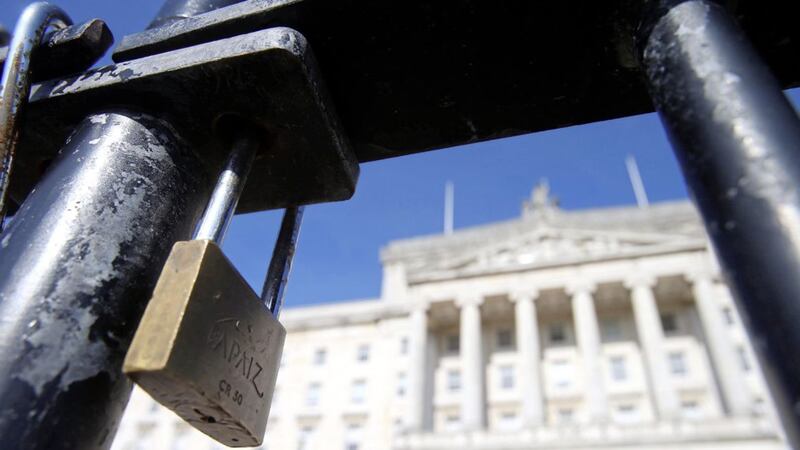Brian Feeney nailed it in Wednesday's column: ''Of course republicans reject any notion of blame or demand for repentance while unionists reject any notion of truth and justice as defined by republicans. It doesn't take very long to spot that there isn't going to be any reconciliation here, not only because it's a religious concept irrelevant to politics but because the constituent parts of reconciliation are different for each community. Furthermore since reconciliation means different concepts and priorities to each community it automatically produces whataboutery.''
I would go a little bit further than Brian. Reconciliation is not possible when there is no agreement between the key parties on the present and future constitutional status of the country they're seeking to govern. In some other conflict zones - including many where the bloodshed and brutality has been much, much worse than what we have endured here - a form of stability has proved possible because the warring sides have, at the very least, agreed on the geographical and constitutional integrity of the country.
Reconciliation would also require widespread underpinning and endorsement from both the surviving victims and the families of the dead. Again, that seems impossible to achieve. There is no agreement on the causes of the conflict and the best the terrorists (and some of them don't even describe themselves as terrorists, of course) can come up with is a variation of: "Yes, very bad things happened, but those incidents have to be seen in historical context."
No one will say the lines: "What we did was wrong and unjustifiable. We should never have done it and we will assist the authorities in providing any information which will help the victims we have created." And while those words remain unsaid there can be nothing approaching closure for victims and, consequently, little incentive to support something that would clearly be pretend reconciliation.
So, what do we do? Well, we need to address the question of whether stable government is, in fact, possible in the absence of genuine reconciliation. Brian argued: ''There is a way to make progress. Stop weaponising reconciliation, repentance, truth commissions, legacy investigations - all subsets of religious definitions - and get on with constructing a local administration.''
The problem with that solution is that too many people - on both sides - regard it as drawing a line under the past and moving on for the sake of moving on.
Here's another question: even if a line was drawn under the past how would the support bases of the DUP and Sinn Féin react? At the moment both parties are continuing to expand their bases; but expanding them because they are hardening rather than softening their positions on just about every issue. Drawing a line under the past wouldn't help the parties understand the past and wouldn't, in turn, help them agree a shared future. All it would do is encourage them to rely on fudge and sticking plaster every time they faced a crisis.
The other thing to bear in mind is that stability is impossible if Sinn Féin continues to prioritise Irish unity above everything else. But since their mandate is built on securing unity as soon as possible then a long term internal deal with unionism isn't going to be in their interests. A Northern Ireland bobbing along within the United Kingdom is not something they could sell to their supporters. Similarly, unionists aren't going to agree to anything that appears to lift the Union anchor and leave them drifting while Sinn Féin pushes for a border poll, followed by another one until they get the result they want.
Back to my original question: what do we do? I don't actually know. I see no evidence of either the two key parties or their supporters endorsing, let alone actually wanting anything which could be described as reconciliation. I see no evidence of them actually wanting to work together. I see no evidence of a combination of the so-called middle ground and non-voters gathering the strength to offer an alternative to the DUP/SF axis. I see no evidence of new vehicles and voices offering something different. I see no evidence that the happy-clappy evangelists of a 'better tomorrow if only we just tried' are being listened to by anyone other than their own guest lists. I see no evidence of a majority giving a damn about whether or not the executive and assembly are rebooted. I see no evidence that an assembly is capable of resolving the big ticket problems.








